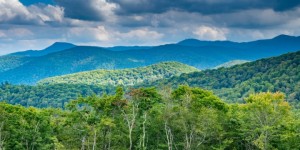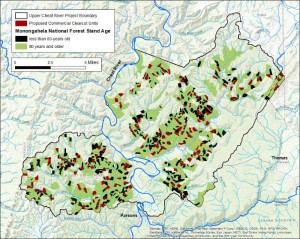Conservation Activities in the Monongahela National Forest
.
.
.
Article by Olivia Miller, ABRA Update of June 12, 2023
In the opposition to the Atlantic Coast Pipeline, we saw firsthand how Geographic Information Systems (GIS) technology can be used as a powerful tool for engaging and mobilizing the public in conservation efforts. GIS allows us to map, organize, and visualize data to to capture a broader picture of a project’s impact on an entire ecosystem.
As we expand our Conservation Hub program to cover a broader range of development and management projects in the Allegheny-Blue Ridge Mountain region, we enter a new territory of public scrutiny and involvement in projects that threaten our environment and communities.
ABRA’s Conservation Hub is a tool for you — purposefully guided by our partners to have the greatest impact on the collective effort of environmental protection.
Upper Cheat River Project in the Monongahela National Forest
As part of the Allegheny-Blue Ridge Alliance’s National Forest Integrity Project, a Hub Site dedicated to the Upper Cheat River Project explores the U.S. Forest Service’s management proposal for the 86,138-acre area in Tucker and Preston Counties of West Virginia and the conservation concerns of local citizens and environmental groups.
Commercial regeneration harvests (clearcuts) have been proposed for 3,647 acres dispersed among approximately 140 separate units throughout the project area. The map above shows the project boundary, proposed clear-cut areas, and age of tree stands.The Forest Service seeks to increase early successional habitat (0-19-year age class) and reduce mid-to-late successional habitat (80-120-year age class) based on analysis of forest age distribution on National Forest land.
Conservation groups have argued that this analysis needs to account for both the extent of existing early successional habitat in the larger project area and the importance of older forests for carbon storage and ecosystem resiliency in the context of climate change.
See more on the Upper Cheat River Project here.
See more on the National Forest Integrity Project here.
ADDRESS: Allegheny-Blue Ridge Alliance, P.O. Box 96, Monterey, VA 24465

